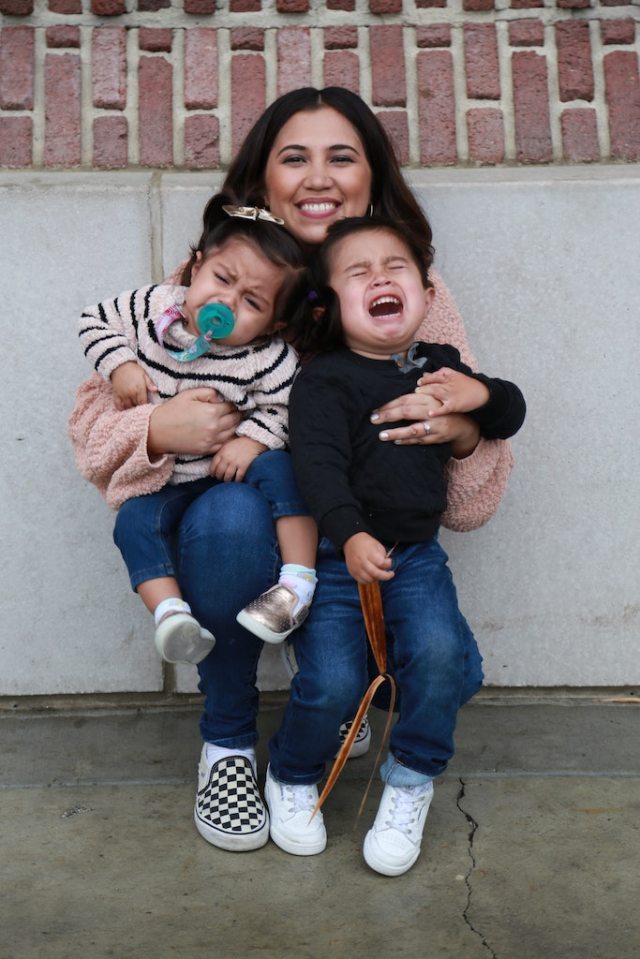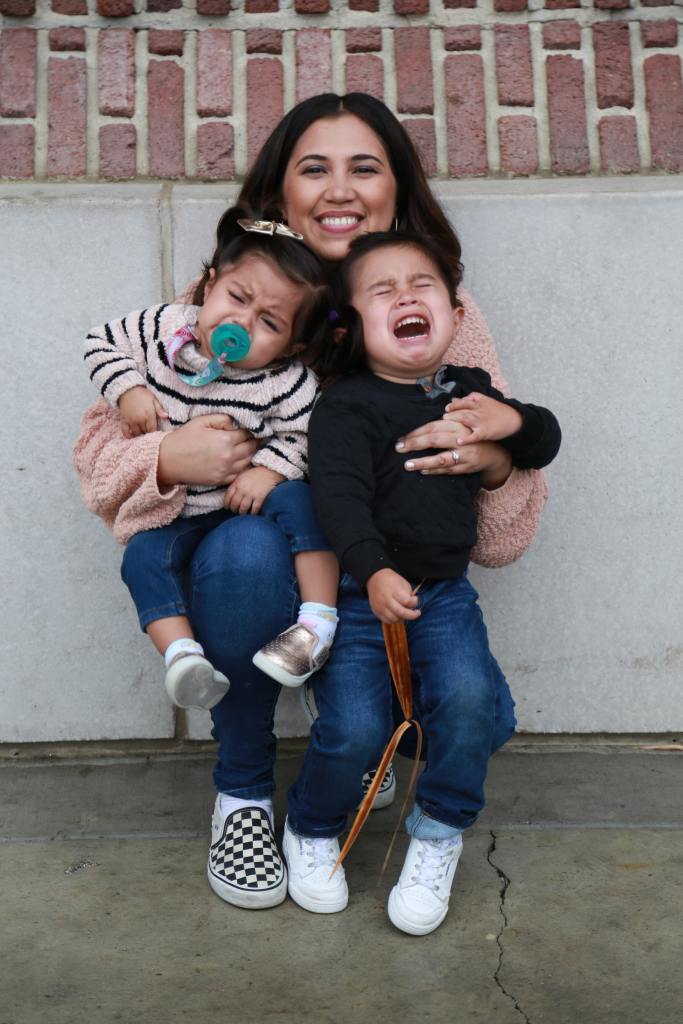Welcome to the Red Tricycle Community Guidelines. We created Red Tricycle Community to provide moms with a safe and unique place where they can connect with other moms, share experiences, share challenges, give and get advice, laugh, and do much more.
These Guidelines are here to help Red Tricycle be a great place for as many moms as possible! Red Tricycle is a community where a mom can feel welcome and safe, and not be subjected to personal attacks or disrespectful behavior.
As the “owner”, the Red Tricycle Team will do our best to enforce the Guidelines of the Community, assist members with any questions, and provide a clean place for moms to spend their time.
Red Tricycle Guidelines – Rules of Conduct
The most important rule is to be respectful of all members of the site. General kindness to each other will enable the community to a place that will be open and welcome newcomers.
- Be respectful of others.
- Don’t harass, personally attack, or gang up on others.
- Slurs, stereotyping, and hate speech are not tolerated.
- Controversial topics and debate are great, but they should be done constructively. Be prepared for others to agree AND disagree with you and your ideas.
- Use the Privacy and Security settings to control the privacy and security of your Red Tricycle experience.
- Don’t post something just to inflame or annoy others.
- Don’t ask other members for help in the form of money, gifts or donations.
- Be respectful of others when posting any content that is adult in nature. Nude photographs or images are not allowed. Neither are photographs or images of abortion or depictions of violence.
- Don’t share your personal information or anyone else’s information with someone unless you’re absolutely certain it is safe to share with that person. That includes anything another member shared with you in private.
- Do not post under multiple accounts.
- Help us keep Red Tricycle orderly by reporting any problems you see on the site including posts that break these rules and anyone you suspect doesn’t belong on Red Tricycle.
- Don’t do anything criminal or illegal on Red Tricycle or encourage anyone else to do so.
- You may discuss Red Tricycle policies, but only in Suggestions & Feedback in Red Tricycle Conversations.
Red Tricycle’s Responsibilities
The Red Tricycle Team will not look at every post, photo or comment made on the site nor do we guarantee the integrity of every member on the site. But, if we catch something that we believe violates our Community Guidelines or the Red Tricycle Terms of Service – because we noticed it or you reported it – we will review the situation and take appropriate action if necessary.
When you report something to us that you believe violates these Guidelines or the Red Tricycle Terms of Service, we will do our best to review it. We will not always agree with you that there is a problem. When we do agree, we will take the action that we feel is appropriate. For privacy reasons, we often will not be able to share the action that we have taken, but we take all reports seriously, and take appropriate actions when necessary. While we listen to our members, we have the final say on whether content or conduct is permissible under these Guidelines and our Terms of Service.
We always have the right to remove postings, warn members, suspend accounts, and/or cancel accounts to enforce these Guidelines or the Red Tricycle Terms of Service or as we deem necessary to maintain the integrity of the site or our business. Whatever action we choose to take, our decision is final. We will not always explain our actions, but rest assured we do not take these decisions lightly.
We generally won’t take action against older content that violates these Guidelines. We feel our efforts are better spent focusing on current issues on the site.
If we feel that by removing a post or a member we can make the site experience better for the rest of the members, we will do it. Or, we could decide that a posting that you find objectionable is within the Guidelines. You may not always think our decisions are fair and you may not always agree with us.
Your Responsibilities
By following these Community Guidelines, you will be doing your part to make Red Tricycle a great place for all moms to be. In addition, you have Privacy and Security tools to control who sees the content you post.
These Guidelines are a work in progress. We may revise these Guidelines at any time and without prior notice.>
Red Tricycle Detailed Rules of Conduct
Be respectful of others. It’s the most important thing for everyone on Red Tricycle. Try not to take things too personally.
Don’t harass, personally attack, or gang up on others. You can be opinionated and say that your opinion is better or different than another opinion. But don’t be nasty about it. Disagree with the opinion, not the person. Don’t name-call or try to rally support for your “side”.
Slurs, stereotyping, and hate speech are not tolerated. Slurs, hate speech and attacks aimed at any race, color, religion, national origin, disability or sexual orientation are not tolerated at all on Momburbia.
Controversial topics and debate are great, but they should be done constructively. Be prepared for others to agree AND disagree with you and your ideas.
- When you post something, especially about a controversial topic, expect that your viewpoints and opinions may be vigorously questioned, challenged, and held up to scrutiny. If having your opinions challenged and being expected to defend your position will make you uncomfortable, please don’t post about that topic
- Red Tricycle tries to be a place where people can express their opinion and practice freedom of speech, even if their message is extremely controversial or of questionable validity. That means that you might feel something is “wrong” and doesn’t belong on Red Tricycle, and we might disagree. We feel that sometimes the best way to defend against ignorant or prejudicial speech is with more speech.
- Discussion and debate are not only allowed, they are encouraged. But, if a healthy discussion breaks down into an exchange of attacks and insults or becomes too heated, we will take measures to end the discussion.
- We are particularly sensitive to members criticizing or attacking the parenting styles or parenting decisions of other members. Use sensitivity when expressing your opinion about the way another member is raising her children.
Don’t post something just to inflame or annoy others.Posts that are meant to only upset another mom or group of moms have no place at Red Tricycle. They simply pollute the air and make it a less inviting place for everyone. Sometimes posts and comments are unintentionally inflammatory – and we understand that – but we might still remove the post or commen
Don’t ask other members for help in the form of money, gifts or donations.We appreciate the stress on you and your family resulting from financial pressures, however, it is not acceptable at this community to ask another member for money, goods or services. Instead, you can suggest that members donate to official.
Advertising and promotions guidelines
Acceptable Advertising includes:
- Products that you are selling (personal or professional)
- Job opportunities
- Charities and charitable causes
- Promoting your entry in a contest (e.g,. “vote for my baby in the cutest baby contest on xyz.com!”)
Pyramid schemes and cash gifting scams are illegal and posting information about these schemes anywhere on Red Tricycle is prohibited. In addition, posts soliciting or advertising the availability of children for adoption are not permitted on Momburbia
There are many things that members are prohibited from listing for sale on Red Tricycle. Click here to see the list of prohibited or restricted items.
Be respectful of others when posting any content that is adult in nature. Nude photographs or images are not allowed. Neither are photographs or images of abortion or depictions of violence.
We all have different thresholds for what we are comfortable seeing and reading. In addition, while Red Tricycle is a site for families, that often have their children around! In order to make Momburbia comfortable for everyone, and so any little ones don’t see something that they shouldn’t, please adhere to the following guidelines when posting content that may not be suitable for everyone.
Cursing and adult content are prohibited.
Nude photographs or images are not allowed, though breastfeeding and birthing photos are permitted as long as they are noted accordingly in the title of the album or photo. For example, your album title can be “Feeding my Baby Boy”(Nude) The album cover must also be a non-nude image to allow the user to chose if they wish to enter and see nude photos. Also, if you wish to post an image on your wall or within a group or blog, post a non-nude image and mention that your album is available in the photos section to view and see all photos.
We also allow “nude” pictures of babies under 6 months old – we don’t believe that it’s a wise idea to post nude pictures of anyone older than that.
Don’t share your personal information or anyone else’s information. Would you give your phone number, street address or anything else to a mom you just met? Maybe – if you trusted her or knew someone in common. But you probably wouldn’t give it out to someone you knew little about. The same is true online. Don’t give out your personal information to anyone else unless you’re sure it’s safe. And, don’t give it out in a public area of Momburbia where others can see it too. It will be removed
Don’t give money to people who ask for it online. While their stories may move you, you have no way of knowing if they are legitimate. We can’t verify the identities of everyone on the site and you use the site at your own risk. We urge you to learn and follow best practices for staying safe online.
You should also not share or post anyone else’s personal information. Don’t repost messages from private groups or messages in public places. If the information was posted in a private group, assume that the member wants it to remain private.
We are not responsible for what happens off the site, even if it was organized on Momburbia. Be careful whom you talk to, whom you trust, and what you do in the “real” world based on what you read online
Help us keep Red Tricycle orderly by reporting any problems you see on the site, posts that break these rules, and anyone you suspect doesn’t belong on Red Tricycle.
If you see something, say something to us. We’re always on the site in one-way or another. And, we rely on Red Tricycle members to help us identify when there is a violation of these Guidelines. When you report something to us, we will do our best to investigate it. You don’t need to report things multiple times or have your friends also report the same issue. We try to review everything sent to us and sending it multiple times just slows things down for everyone.
If you think you’ve found an “imposter” or suspect that a member is not “legitimate,” let us know and we will investigate promptly. Do not threaten, harass or make blog posts about your suspicions. Doing this will only interfere with and slow down our efforts to get to the truth quickly. Likewise, if we discover that you are pretending to be someone you are not, we will cancel your account.
Don’t do anything criminal or illegal on Red Tricycle or encourage anyone else to do so.
Any postings that we reasonably believe or suspect are criminal or illegal in nature will be removed and any conduct that we suspect is illegal or which poses a threat of illegal activity will be reported to the appropriate authorities. We will cooperate with authorities to prosecute anyone who breaks the law while using our site. Do not link to sites containing criminal or illegal activity
If you see something that you believe is illegal, you can report that to the authorities. We are not experts, and cannot make assessments about the legality of many things – if you think it’s illegal, you should contact the police and let them make the decision. We will fully cooperate with any authorities who contact us about issues on Red Tricycle
You may discuss Red Tricycle policies, but only in the Red Tricycle Suggestions and Feedback inside Conversations.
We are open to constructive feedback about our decisions and policies. But in order to keep on top of all of the inquiries, we need everyone to post their policy discussions in the same place.
We created the Red Tricycle Community Guidelines to help all users understand how groups are run and regulated on Red Tricycle.
Red Tricycle COMMUNITY GUIDELINES – CLASSIFIEDS
Many laws, regulations and policies, in a variety of jurisdictions, regulate the goods and services that may be bought and sold. For your convenience, we have prepared a list of some of the types of prohibited and restricted items the advertisement for sale of which is not permitted on Red Tricycle.
Red Tricycle users remain responsible for complying with all applicable laws, regulations or restrictions on items, services, or manner of sale, payment or exchange, that may apply to transactions in which they participate — including but not limited to those imposed by your federal, state, and local laws and guidelines.
Partial list of items for sale and services the advertisement of which is not permitted on Red Tricycle:
- Obscene material or child pornography.
- Offer or solicitation of illegal prostitution.
- Weapons and related items, including but not limited to firearms, disguised, undetectable or switchblade knives, martial arts weapons, scopes, silencers, ammunition, ammunition magazines, BB guns, tear gas or stun guns.
- Items issued to Canadian or United States Armed Forces that have not been disposed of in accordance with Department of Defense demilitarization policies.
- Fireworks, including but not limited to “safe and sane” fireworks or any destructive devices or explosives.
- Controlled substances or illegal drugs, substances and items used to manufacture controlled substances and drug paraphernalia.
- Alcohol or tobacco products.
- Prescription drugs and medical devices, including but not limited to prescription or contact lenses, defibrillators, hypodermic needles or hearing aids.
- Nonprescription drugs that make false or misleading treatment claims or treatment claims that require FDA approval.
- Blood, bodily fluids or body parts.
- Household pets of any kind including but not limited to dogs, cats, primates, cage birds, rodents, reptiles, amphibians, fish. Re-homing with small adoption fee OK
- Pet animal parts, blood, or fluids – including but not limited to stud/breeding service
- Restricted or regulated plants and insects, including but not limited to noxious weeds, endangered plant species, or live insects or pests.
- Pesticides or hazardous substances, or items containing hazardous substances including but not limited to contaminated toys, or art or craft material containing toxic substances without a warning label.
- Illegal telecommunications equipment, including but not limited to access cards, password sniffers, access card programmers and unloopers, or cable descramblers
- Stolen property, or property with serial number removed or altered.
- Burglary tools, including but not limited to lock-picks or motor vehicle master keys
- False identification cards, items with police insignia, citizenship documents, or birth certificates.
- Counterfeit currency, coins and stamps, tickets, as well as equipment designed to make them.
- Counterfeit, replica, or knock-off brand name goods.
- Material that infringes copyright, including but not limited to software or other digital goods you are not authorized to sell, warez, bootlegs (without consent of the band).
- Airline tickets that restrict transfer, and tickets of any kind which you are not authorized to sell.
- Coupons or gift cards that restrict transfer, and coupons or gift cards which you are not authorized to sell.
- Gambling items, including but not limited to lottery tickets, sports trading card ‘grab bags’, raffle tickets, sweepstakes entries or slot machines.
- Used or rebuilt batteries, or batteries containing mercury.
- Used bedding and clothing, unless sanitized in accordance with law.
- Non-packaged food items or adulterated food.
- Bulk email or mailing lists that contain names, addresses, phone numbers, or other personal identifying information














